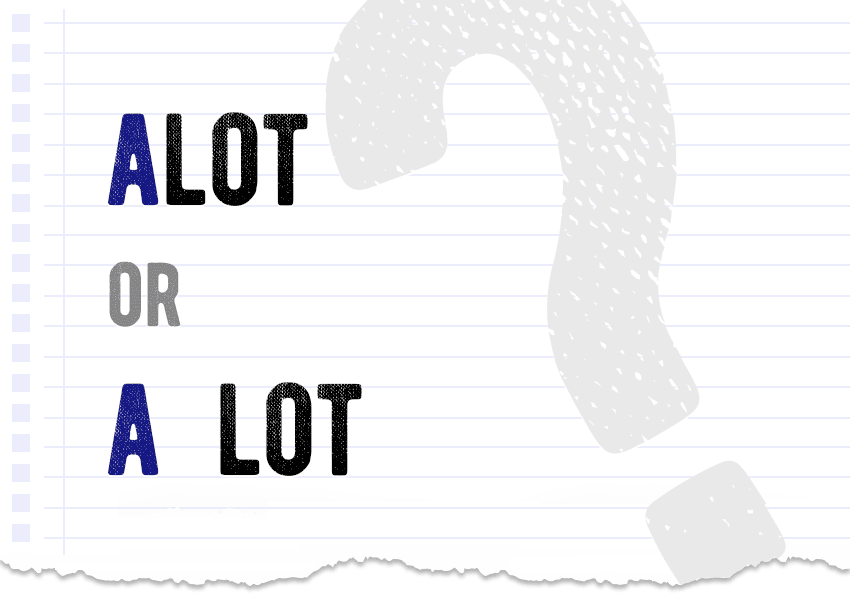Alot or a lot – which form is correct?
What is a difference between alot and a lot? Are both the forms correct? Let’s not ask… many questions and have a quick look.

Alot or a lot – which form is correct?
A lot, two separate words, is the only correct spelling that can be found in every dictionary. The second form is always incorrect. Interestingly, however, there exist a word allot, which means “to assign as a share or portion”.
The definition of a lot
We use a lot to say that something appears in a large number or amount. A lot is often accompanied by of, which, grammatically speaking, marks the genitive case. We use a lot, well… quite a lot. The phrase is short and common, and it often slips away unnoticed. It means, on the other hand, that it is not too difficult to find a lot of literary examples of a lot.
A lot of synonyms
A lot can be used as a noun, when we talk of abundance, great deal, lots, or loads of things. When we use a lot as an adverb, meaning greatly, we can use other synonyms that include entirely, substantially, highly, extremely or notably.
Alot or a lot? Now it is all clear! Examples from literature
She liked Charles Tansley, she thought, suddenly; she liked his laugh. She liked him for being so angry with Paul and Minta. She liked his awkwardness. There was a lot in that young man after all.
Virginia Wolf, To the Lighthouse, 1927
Dante knew a lot of things. She had taught him where the Mozambique Channel was and what was the longest river in America and what was the name of the highest mountain in the moon.
James Joyce, The Portrait of the Artist as a Young Man, 1916
Scott, you asked me to tell you the truth and I can tell you a lot more but this is the absolute truth and all you need. You could have gone to see a doctor.’
Ernest Hemingway, A Moveable Feast, 1964


